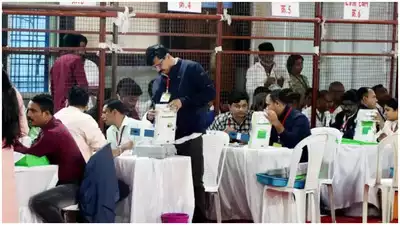A recent investigation has revealed contrasting payment practices among human smuggling agents from Gujarat and Punjab when facilitating illegal migration to the United States. While Gujarat-based agents reportedly collect payments only after migrants successfully enter the U.S., their counterparts from Punjab demand the full amount upfront.
Gujarat: Payment Upon Entry
Agents in Gujarat typically assure families that payments will be due only after the migrant has safely crossed into U.S. territory. This arrangement is perceived as a confidence-building strategy to attract more clients, as families are less financially burdened upfront.
Punjab: Payment in Advance
On the other hand, agents from Punjab insist on receiving the complete payment before the journey begins. Families often mortgage properties or take heavy loans to meet the demands of these upfront payments, making the financial risk significantly higher.
Increased Risks and Concerns
While Gujarat agents’ payment model may seem more appealing, it doesn’t eliminate the risks associated with illegal migration. Migrants still face perilous routes, arrests, and exploitation. Meanwhile, the Punjab model often leaves families with no recourse in cases where the journey is unsuccessful or migrants face detention.
Government Crackdown
Authorities have intensified efforts to curb these illegal operations, with increased monitoring and stricter penalties for human smuggling networks. Experts stress the importance of raising awareness among potential migrants about the legal dangers and financial risks involved in seeking unauthorized entry to foreign countries.
The contrasting approaches highlight a growing need for stricter enforcement and public awareness to combat human trafficking and protect vulnerable families from exploitation.




